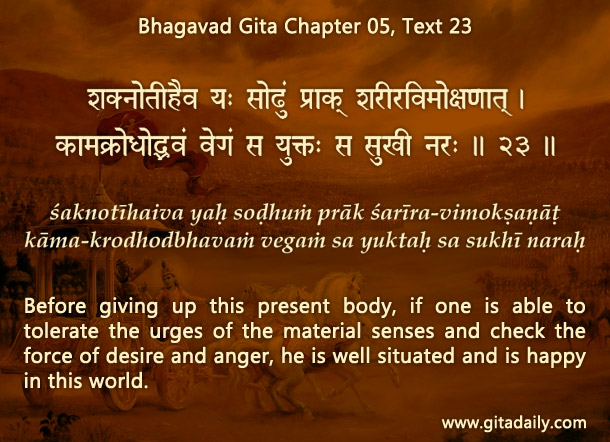When we get angry, we often speak and act in regrettable ways. Still, we falter and fail in our attempts to resist anger. How can we do better?
To control anger, we need to see it rightly – as a sign of weakness, not strength. Anger deludes us by giving us a false feeling of strength. It makes us feel that we have been weak till now; that others are therefore treating us like a doormat; and that the only way we can show our strength is by becoming angry. Thus, anger makes us believe that by speaking and acting strongly, we can put others in their place and make them take us seriously, thereby setting things right.
If we do anger’s bidding, our words and deeds soon backfire – our anger-impelled actions aggravate others and worsen the situation.
Significantly, the Bhagavad-gita (05.23) states that those who are able to control the forces of desire and anger are spiritually situated and find contentment. The phrase “those who are able to” (shaknoti) implies that resisting anger requires strength – strength that not everyone possesses.
By scripturally-guided introspection, we can learn to see anger as a sign of weakness. Our becoming angry indicates that the situation is determining our actions, that we have become too weak to choose our actions.
Of course, we shouldn’t be passive, letting others trample us. But neither should we be aggressive, trying to out-trample others. We need to be assertive, which requires that we judiciously moderate our response.
By thus seeing anger as a sign of weakness, not strength, we can gain the impetus to fight it. And by connecting with Krishna, who is the omnipotent source of the supreme grace, we can get the spiritual strength to not only resist anger but also respond appropriately and adeptly.
To know more about this verse, please click on the image
Explanation of article:
Podcast:
Download by “right-click and save”


Thanks prabhu, I just implemented your wisdom and got peace and work also got done smoothly.
Am grateful to know that I was of some small service to you.